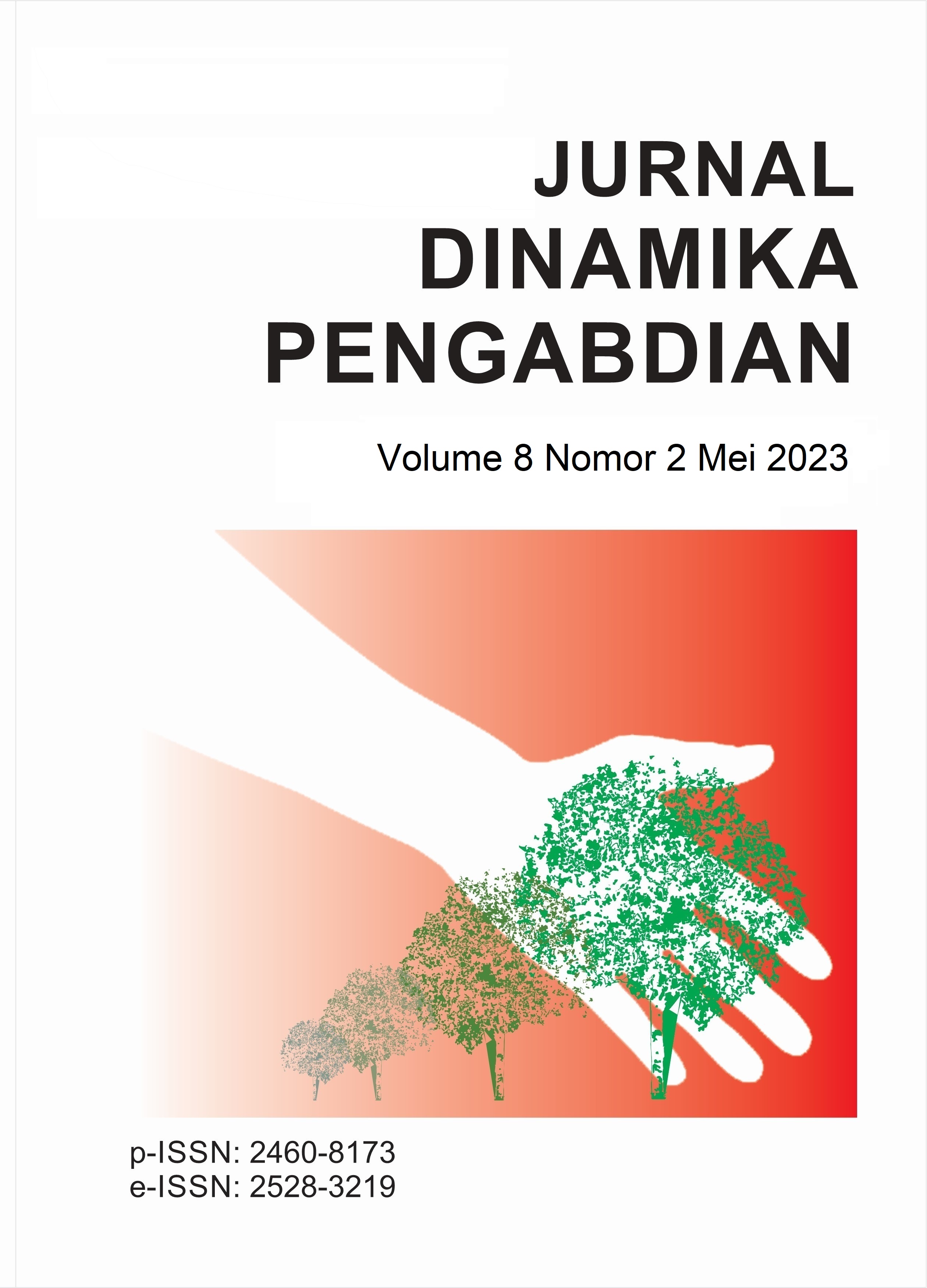KEBERLANJUTAN PRODUK DAN INTERVENSI PASAR BIOSTIMULAN ORGANIK PADA KELOMPOK TANI DI KABUPATEN PINRANG DAN KABUPATEN SOPPENG MENUJU KOMERSIALISASI PRODUK
DOI:
https://doi.org/10.20956/jdp.v8i2.24190Keywords:
Asam organik, keberlanjutan, intervensi pasar, pendapatanAbstract
Kulit buah kakao merupakan salah satu limbah pertanian yang jumlahnya cukup besar di Sulawesi Selatan, padahal dapat dimanfaatkan sebagai kompos karena mengandung sejumlah unsur hara, hormon tumbuh, dan asam organik yang dibutuhkan tanaman. Kegiatan bertujuan untuk menjamin keberlanjutan produk dengan memastikan ketersediaan kulit buah kakao sebagai bahan baku pembuatan kompos dengan melibatkan Kelompok Tani Mallongi-Longi Kabupaten Pinrang. Selain itu, kegiatan juga bertujuan untuk melakukan intervensi pasar pada Kelompok Tani Mamminasa Deceng, Kabupaten Soppeng dengan melakukan survey dan pengenalan produk biostimulan organik dari lombah kulit buah kakao. Hasil dari kegiatan ini menunjukkan adanya kepastian penyediaan bahan baku untuk biostimulan. Ditemukan pula bahwa 73% anggota kelompok tani Kabupaten Soppeng tidak mengetahui bahwa limbah kulit buah kakao dapat dijadikan kompos.
Kata kunci: Asam organik, keberlanjutan, intervensi pasar, pendapatan.
ABSTRACT
Cacao pod husk is quite a large amount of agricultural waste in South Sulawesi, even though it can be used as compost because it contains several nutrients, growth hormones, and organic acids needed by plants. The activity aims to ensure product sustainability by providing the availability of cocoa pod husks as raw material for making compost by involving the Mallongi-Longi Farmer Group, Pinrang Regency. In addition, the activity also aims to intervene in the market for the Mamminasa Deceng Farmer Group, Soppeng Regency, by conducting a survey and introducing organic biostimulant products from cacao pod shells. The results of this activity indicate certainty in the supply of raw materials for biostimulants. It was also found that 73% of the Soppeng Regency farmer groups members did not know that cocoa pod shell waste could be composted.
Keywords: Organic acids, sustainability, market intervention, income.
References
Anto, Y. (2015). Industri Pertanian Organik. Gontor Agrotech Science Journal, 2(1). https://doi.org/http://dx.doi.org/10.21111/agrotech.v2i1.7201
Atmojo, S. W. (2003). Peranan Bahan Organik terhadap Kesuburan Tanah dan Upaya Pengelolaannya. Surakarta.
Kartono, K. (2009). Pemimpin dan Kepemimpinan. Apakah kepemimpinan yang abnormal itu? Jakarta: RajaGravindo Persada.
Rahim, I., Meriem, S., & Abdallah, E. H. (2022). Organic Acids from Cocoa Pod Waste Inoculated by Basidiomycota Fungi to Enhance the Performance of Shallots. AGRIVITA Journal of Agricultural Science, 44(3), 549–558.
Rahim, I., Nasruddin, A., Kuswinanti, T., Asrul, L., & Rasyid, B. (2018). Utilization of Cocoa Pod Husk Waste Composting by Tremella Sp and Pleurotus Sp as A Medium to Growth of Cocoa Seedling. IOP Conference Series: Earth and Environmental Science, 156(1). https://doi.org/10.1088/1755-1315/156/1/012012
Rao, S. N. (2010). Soil Microorganisms and Plant Growth. Jakarta: UI Press.
Zimmer, G. (2004). Humic Substances in Biological Agriculture. Acres, 34(1), 54–61.
Downloads
Published
How to Cite
Issue
Section
License
Copyright (c) 2023 Jurnal Dinamika Pengabdian (JDP)

This work is licensed under a Creative Commons Attribution 4.0 International License.
Penulis diwajibkan untuk menandatangani "Surat Perjanjian Hak Cipta" atau Copyright Agreement untuk penyerahan ijin kepada pihak jurnal untuk menerbitkan tulisannya.
Authors are required to sign a "Copyright Agreement" to submit permission to the journal to publish their writings.







